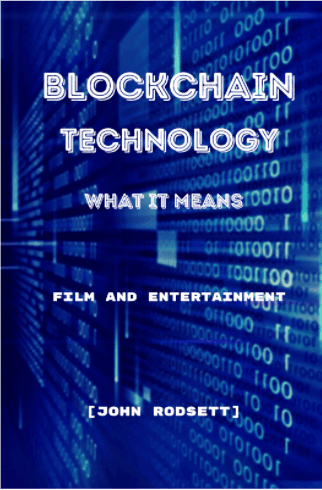Blockchain and The Entertainment Industry

Blockchain and The Entertainment Industry

For decades, the film industry has been dominated by studios, large distribution channels, lawyer firms and big agencies.
The traditional Hollywood power structure has created many issues. This includes many legal, agent and financial intermediaries; a lack of transparency; piracy; inadequate protection against violation of intellectual property rights; cumbersome and lengthy processes for financial payment of funds and a general lack of transparency in financial and legal information.
Is the real priority the democratizing of the film industry and taking control out of traditional central powers? Will such democratization allow filmmakers, writers, directors, investors, and fans to interact in an open and transparent environment?
It is time for a fundamental change in the film industry. It is time to move away from the inefficient, non-transparent, closed society, cumbersome, expensive, and prohibitive practices propagated by the old traditional film power brokers. It is time to move into a more sustainable business model that has the flexibility to change with the times.
Since the 1980’s, there have been notable examples of technological advances which have revolutionized the film industry; namely VHS, DVD, Blue-Ray and the rise of major independent film entities. More recently the explosion of streaming services and the internet has reshaped the way audiences watch movies or other content at home or on the go.
Technology has been very influential in making it easier to make and shoot films. Movie theaters made the transition from heavy, analog 35 mm film to digital in the early 2000’s. One of the biggest technological advances came in the world of animation and digital special effects. All are major changes that have had significant effect on the film industry.
Blockchain technology can create an exciting new landscape that simplifies and accelerates the process for independent creators and new investors entering the market.
It removes the gatekeeping and dark business practices that have historically made it impossible for newcomers to enter the industry.

In film participation accounting, there are a myriad of serious issues raised by the traditional film business practices concerning film profit participation of actors, directors, investors. Blockchain technology can help address such concerns. These include the vast number of middlemen; the cost of global transactions; the difficulty of ensuring that the correct people are paid the correct amounts on time; the frequent disorganization and inefficiency of the accounting for productions; and let’s not forget film distribution that is often extremely complex and disorganized.
Some years ago, I worked at 20th Century Fox. During my employment I was involved with the feature film participations department. The responsibility of this department determined "who got what" in film profit participation for the films that Fox produced and distributed worldwide. To say that experience was interesting is an understatement. It involved understanding and computing the various accounting definitions employed by Fox.
The Hollywood accounting "fog" is still very relevant today. It is demonstrated by the following example. The feature film “Bohemian Rhapsody” screenwriter, Anthony McCarten, had filed a breach of contract suit on the 2018 Best Picture nominated film about Queen and its iconic singer Freddie Mercury.
The lawsuit shows a fascinating peek behind the curtain into what happens when participants rely on studio net point deals. The $55 million budget film grossed $911 million worldwide. Yet according to accounting statements issued by 20th Century Fox, “Bohemian Rhapsody” was in the red (loss) to the tune of $51 million.
Similarly, Eddie Murphy famously called net profits definition “monkey points” during a suit against Paramount concerning “Coming to America” not being profitable, despite grossing $350 million.
In an even more interesting profit participation example, a Warner Bros profit statement claimed that despite “Harry Potter and the Order of the Phoenix” grossing $938 million, the film had a loss of $167 million.

How does all this fit with blockchain?
With the use of blockchain technology by all parties at the onset of the film development, full and complete transparency could be attained. With security of blockchain transactions and the use of smart contracts, all this Hollywood "fog" accounting could be greatly reduced.
On the accounting side, it is possible to have a model built on blockchain technology that is responsible for the collection of all film revenue. Upon confirmation of the verified stakeholders and their respective interests in the property the model automatically distributes profits accordingly via smart contracts.
On the distribution side, this technology would allow creators and filmmakers to host their films on an online platform and sell directly to their audience using a digital currency. By creating a blockchain model that hosts and streams content, the model can better protect against piracy and is transparent in its operational dealings.
Blockchain technology can help build a democratized film industry plus add new funding sources. Funding films could take shape in the form of tokens (that act as a security and utility to raise funds) and pay dividends to token buyers.

BENEFITS OF BLOCKCHAIN
Blockchain technology ensures strict protocols are followed on transactions and carried out automatically. This could benefit all sectors the film industry. This technology would and could provide:
- Security
- Instant, verifiable transactions anywhere in the world without the intervention of a middleman
- Payments of any amount made with minimal or no transaction costs or exchange rate issues
- Permanent, time stamped, secure records of all transactions
- Real-time reporting of all financial dealings
- Immediate execution of smart contracts and business rules without intervention of a third party
- Management and execution of all financial stipulations from one party to another party or to multiple parties
DECENTRALIZED
Blockchain, through its ability to provide a decentralized database, which is publicly accessible to all parties, is a major benefit to the film industry. Transactions can be entered into the chain and verified using automated systems across networks. This removes the need for a third party to oversee or manage these transactions. Security and verifiability are at the highest level, so records have a high level of integrity on a blockchain network.

SMART CONTRACTS
A smart contract is an agreement between parties in the form of computer code. They run on the blockchain network, so they are stored on a public database and cannot be changed.
The transactions that occur in a smart contract are processed by the blockchain, which means they can be sent automatically without a third party.
In the world of online streaming services worldwide and major companies having millions of subscribers with vast content, blockchain networks could provide verifiable and decentralized systems to manage these complex distribution models for production companies.
Smart contracts can be used to register and enforce distribution terms, with agreements between producers and distributors having been entered into the blockchain network. In addition, the system of blockchain would allow the financial terms and conditions to correctly divide distribution rights between partners through contract tokens and rules, which can be set up in a way to be triggered when certain pre-arranged events are reached.
Smart contracts will automatically distribute revenue when collections are received and recorded. In so doing they help to eliminate a significant problem within the industry and would do it with increased efficiency and transparency.
COPYRIGHT
This technology would also assist in ensuring, establishing, and protecting copyrights. Copyright protection is a complex and expensive business. It is often a time-consuming expensive venture.
The blockchain network can be used to create an indelible record of transactions for any and every concept, story, script, and character, which means ownership can be verified and the asset tracked through any transaction flow. Smart contracts can be used to create and define rules of the film business for all activities.

PIRACY
One of the most serious problems in the film and entertainment is piracy. Blockchain networks can be used to ensure all content is logged and verified in the network.
By storing content meta-data on blockchain networks, a full and complete record of all transactions are tracked. Accessing information or changing data, can only be possible for those with access to the networks; thereby, securing content and ensuring that it cannot be altered or tampered with without official notices within the network.
It would be possible to create a blockchain registry utilizing tokens and smart contracts to verify and allow only legitimate uploads of movies for viewing of product.
There is one big question...
Will the present traditional film and entertainment industry power structure, allow any infringement or undermining of their power base?
Learn more in latest book “BLOCKCHAIN TECHNOLOGY: WHAT IT MEANS - Film and Entertainment” presently available on Amazon.

About the Author

John Rodsett
Producer, Distributor
Been in the film business for 25 years in Los Angeles. Worked at 20th Century Fox and produced 21 feature films . I own a film sales agency company I'm an author and university professor My latest book is "Blockchain Technology: What it Means - Film and Entertainment" My best seller book "The F...




